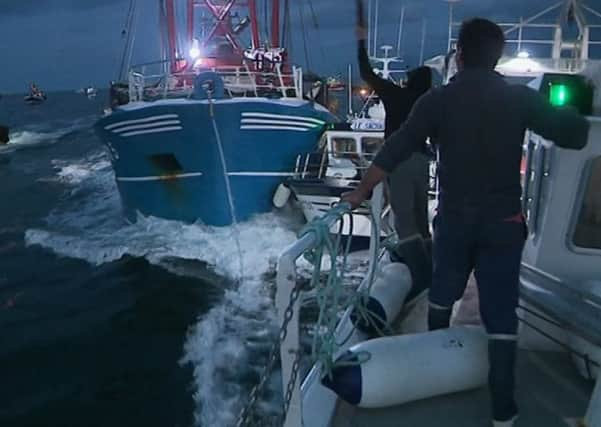Leader comment: Scallop War must not turn into modern-day Cod War


Dramatic video footage of French and Scottish fishing vessels colliding in the English Channel amid a bitter dispute that has already been dubbed the “Scallop War” will remind the older generation of a similar conflict that broke out three times from the 1950s to 1970s.
Each of the Cod Wars with Iceland ended with the UK conceding that its northern neighbour had exclusive fishing rights to an increased area around its coast, eventually establishing a 200-mile limit in 1976; six years later the UN Convention on the Law of the Sea adopted 200 nautical miles as a country’s exclusive economic zone.
Advertisement
Hide AdAdvertisement
Hide AdThe conflict saw boats ram into each other and nets cut, with the British and Icelandic navies getting involved. At least one person, an Icelandic engineer, died, although the death was accidental. One reason that the UK lost the Cod War was geopolitical – the US was concerned it might push Iceland, which occupies a strategic position in the North Atlantic, towards the Soviet Union, leading to the closure of the Keflavik Nato base.
It would appear that the scallop dispute with the French fishing industry has been brewing for years, but it has chosen a particularly awkward time to come to a head, given the delicate state of the Brexit talks with the EU. With French fishermen saying “we have won a battle, but we haven’t won the war”, there is the potential for further clashes that would inevitably inflame nationalist sentiments on both sides.
So the UK Government may be wise to learn a lesson from the Cod Wars and consider the geopolitics, as well as the rights and wrongs of this specific dispute.
It seems clear the British fishermen have not been breaking the law and that the French vessels were the aggressors, but there is a dispute about whether UK boats are contributing to overfishing of scallops in the area. France has banned its fleet from fishing at certain times in an effort to conserve stocks, but British vessels are not affected.
Three things should now happen: the UK and Scottish Governments should open a dialogue with their French counterparts to find an acceptable compromise; the French authorities should persuade their fishermen to calm down to ensure the situation does not get dangerously out of hand; and everyone should remember that the UK and France are two friendly allies and not the protagonists in any kind of war.
